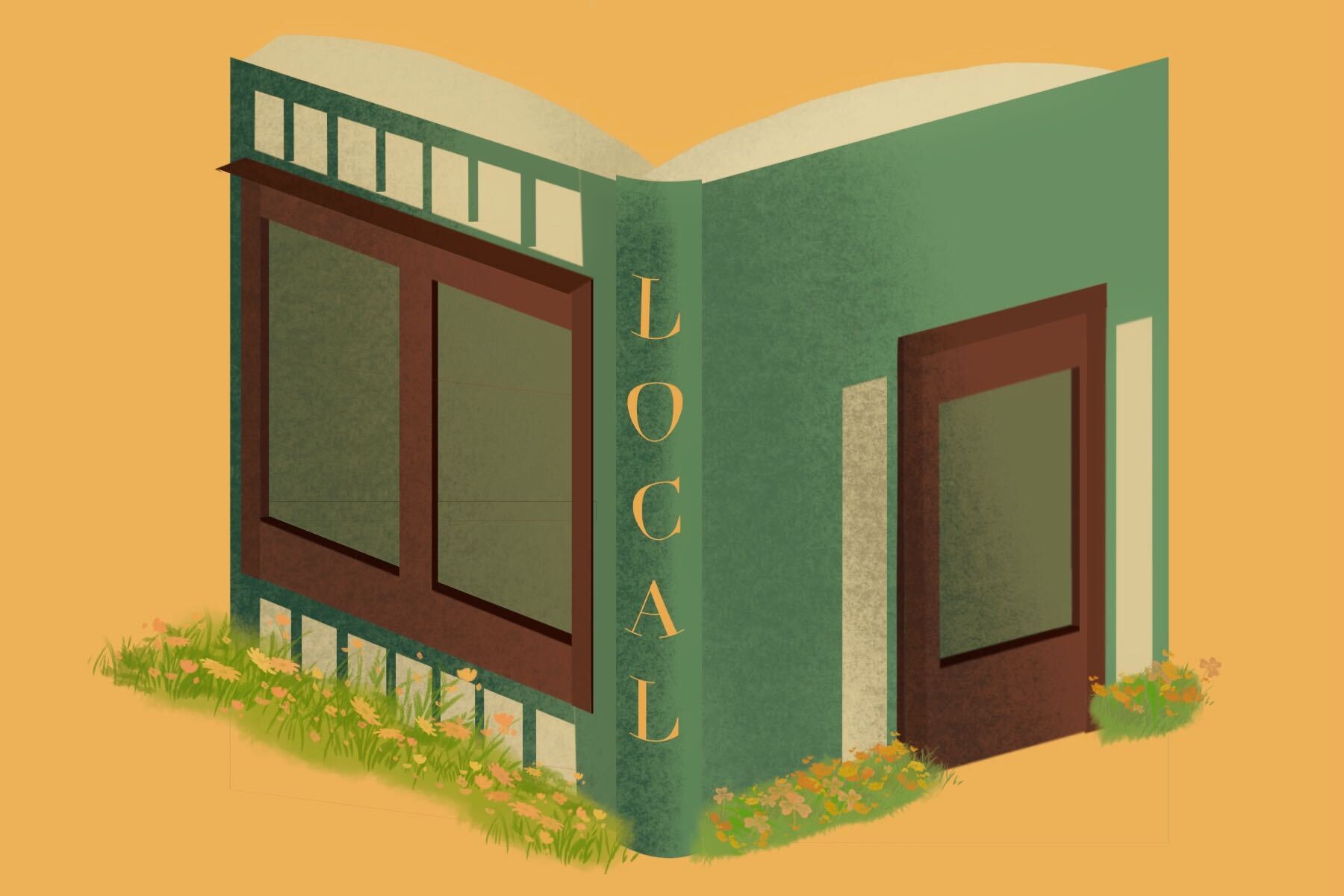Literature is a universal art — people of all cultures and backgrounds come together to celebrate the written word. However, the way we purchase books and support the art form is changing. In the past, book lovers would travel into town to stop at their local bookstores. There, they could browse the various sections and maybe even purchase a coffee from a craft brewer. While this seems ideal for those who love to read, it is becoming increasingly rare and difficult to accomplish. Where beloved local bookstores once stood, massive corporate chains have moved in to monopolize and change the industry. The over-expansion of chain bookstores and the shadow of online retailers such as Amazon have nearly killed the idea of the independent bookstore in the United States. However, despite their dwindling numbers, small bookstores may still be the more favorable option for readers.
According to the U.S. Census, as of 2020, there are 10,800 bookstores in the U.S. — only 2,506 of those are independently owned. Of these 2,506, many are at risk. Few bookstores were spared in the sweeping economic devastation that followed the COVID-19 pandemic. The number of independent stores has fluctuated over the past decade, but has consistently declined since the early 2000s. Bloated bookstore chains like Barnes & Noble run their competitors into the ground and feed on their remains, fully absorbing smaller markets.
With its massive two-floor layout, vinyl selection and cafes, Barnes & Noble has a major influence over the market. If there’s one in your area, there’s going to be a lack of alternatives. They carry most genres including romance, horror, religion, poetry and even manga, so their success is understandable. Small bookstores don’t always carry every genre or author, but you can typically make requests and the owner will order those in-demand books. While this method works, it’s hard to compete against massive retailers with the power to appeal to every reader’s needs before they even step foot inside. However, major retailers do miss out on a niche that only local bookstores have locked in. Local bookstores sell books written by local authors, work from indie publishers and rare titles that are not available for purchase new.
The days of shopping malls are long gone; now it’s all about finding the best price from the comfort of your own home. For many, in-person shopping is becoming a dead pastime. Aside from the Barnes & Noble website, Amazon is the most successful online book retailer. While Amazon does not exclusively sell books, it got its start as a bookstore in the 90s and now owns Audible, giving it a huge stake in the audiobook market. Given its wide selection and convenience, online shopping seems to be leaving in-person stores in the dust. Online shopping isn’t really all that it claims to be, though. In-person shopping still has a few benefits that make it the better option for all your bookish needs.
Firstly, shopping in person rather than online decreases your carbon footprint. If you buy a book through an online retailer, that book has to first be shipped to a fulfillment center, then shipped to your city and finally driven to your door. Shopping local cuts out the middle man; the only significant source of pollution is the emissions from the vehicles used to transport the shipment to the store prior to your purchase. Shopping in person — especially with a local bookstore — is a great way to save money and possibly even time. In-person stores offer lower retail prices and eliminate shipping fees and wait times. A resurgence of in-person book shopping could revitalize small, local bookstores and help close the gap between them and the companies that are killing them.
Shopping at local bookstores contributes to the local economy much more than shopping at chain stores. According to a study done by the American Independent Business Alliance, shopping at a locally owned business generates three times as much economic benefit as shopping at a corporate chain. A 2019 study conducted by Civic Economics discovered that 28% of all revenue made by local bookstores is immediately sent straight back into the local economy, while, on the other hand, Amazon, only recirculates approximately 4%.
While Amazon, Barnes & Noble and other chains are admittedly convenient options, they are not the best choice for readers. Local bookstores bring forth a unique experience that can be much more favorable than purchasing from these large corporate chains and online retailers. Whether you’re looking for vintage books, local authors, indie publishers or just cheaper options, your local bookstores are a great source. It is more important then ever to support independent bookstores; drop corporate, shop local.
















